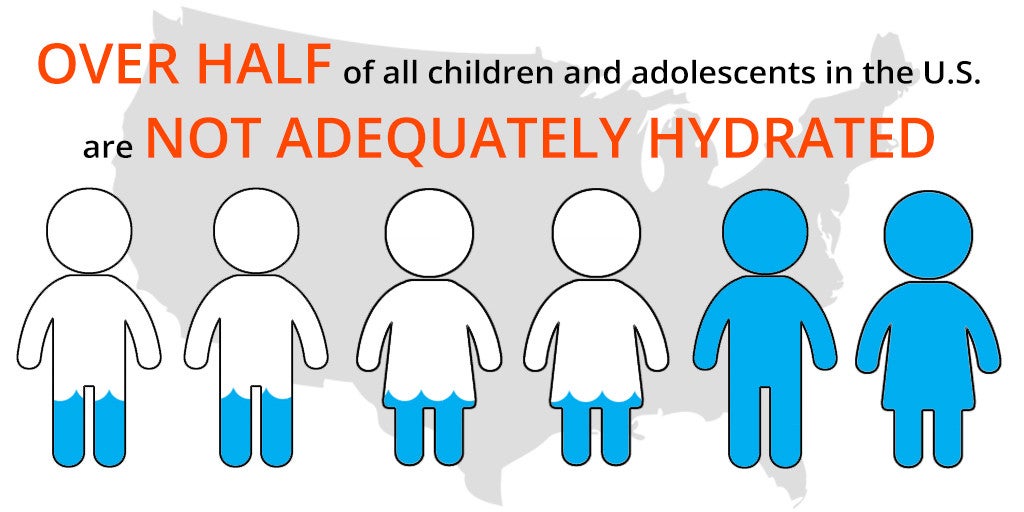An HPRC study found that more than half of all children and adolescents in the United States are not adequately hydrated at any given time.
Inadequate hydration is associated with impaired cognitive and emotional function in children. The study, published in the American Journal of Public Health, identified racial/ethnic and gender gaps in hydration status, with Black children at higher risk of inadequate hydration than White children and boys at higher risk than girls.
“Far too many children and adolescents in this country are inadequately hydrated, which could be negatively affecting their wellbeing and school performance,” said lead author Erica Kenney, a postdoctoral research fellow at the Harvard T.H. Chan School of Public Health. “When we look at what prior research has shown to be the consequences of inadequate hydration, our study results could mean that over half of the children in the country may be experiencing impaired cognitive and emotional functioning based on the hydration levels we identified.”
The researchers analyzed data from 2009-2012 on more than 4,000 children and adolescents from the National Health and Nutrition Examination Survey, a nationally representative study of the health of U.S. children and adults conducted each year by the Centers for Disease Control and Prevention (CDC). They used urine osmolality, a measure of how concentrated a person’s urine is, to determine whether or not children and adolescents (ages 6-19) were inadequately hydrated.
The study also notes that drinking more plain water, as opposed to other beverages, could be the most effective strategy for helping kids stay appropriately hydrated. Researchers found that drinking an additional serving of water, but not other beverages, each day was associated with reduced risk of poor hydration. Other studies have shown that access to free, appealing drinking water in schools can be very limited. Although the Healthy, Hunger-Free Kids Act of 2010 requires schools participating in the National School Lunch Program to provide a source of free drinking water during school lunches, schools may need to improve water access throughout the school building and evaluate policies and practices that can promote drinking water.
Check out these resources to increase water access for children in your school or program:
- Keep it Flowing: A Practical Guide to School Drinking Water Planning, Maintenance & Repair
- Water promotion tips and tools from the Out of School Time Nutrition and Physical Activity Initiative (OSNAP)
- More water promotion resources from HPRC
Kenney EL, Long MW, Cradock AL, Gortmaker SL. Prevalence of Inadequate Hydration Among US Children and Disparities by Gender and Race/Ethnicity: National Health and Nutrition Examination Survey, 2009-2012. American Journal of Public Health. 2015. e-View Ahead of Print.
